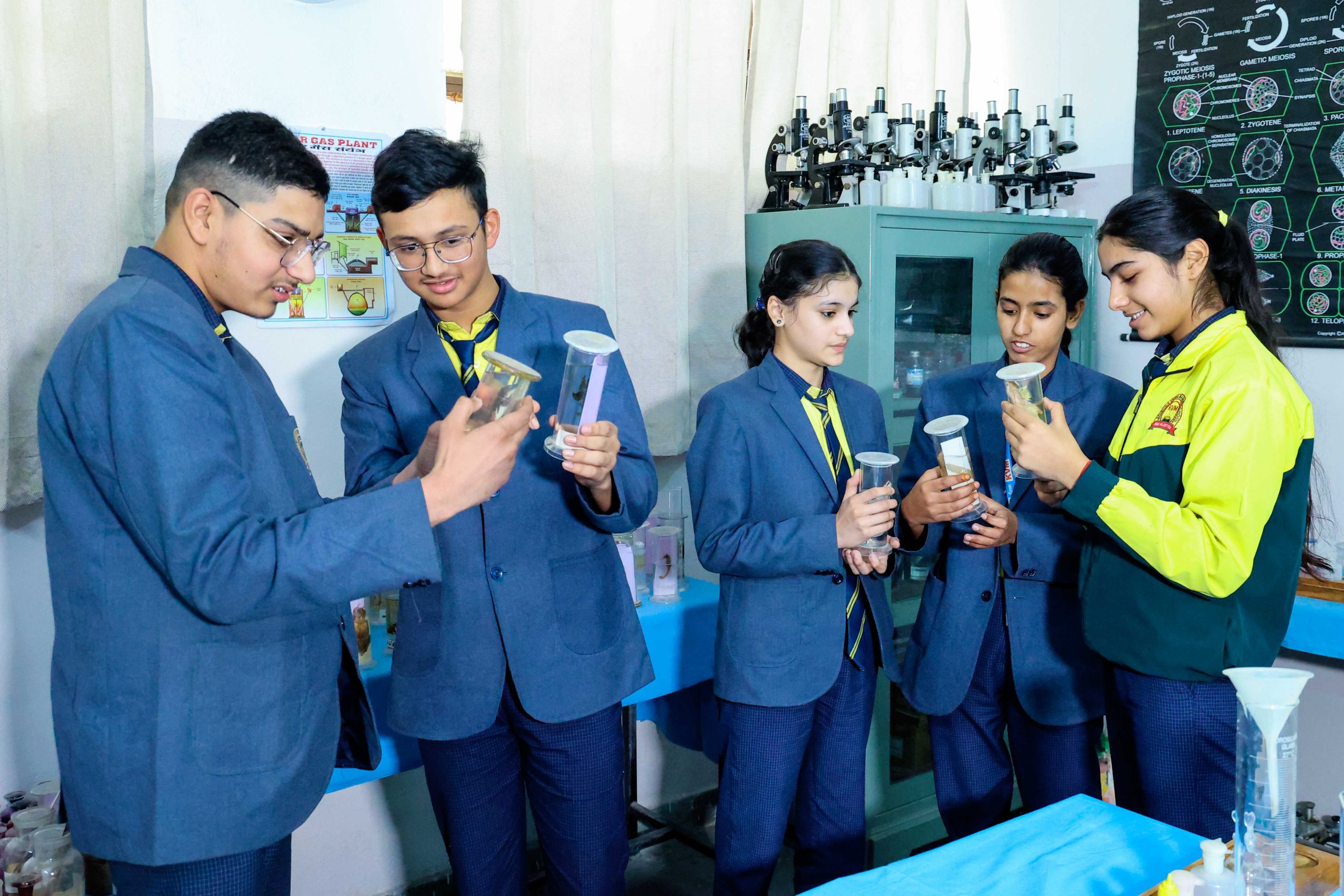Laboratories at KVM

Catalysts for Hands-On Learning and Discovery
The laboratories at KVM are dynamic spaces where theory meets practice, and students engage in hands-on exploration, experimentation, and discovery across various disciplines. Equipped with state-of-the-art facilities, modern equipment, and experienced faculty, our laboratories provide students with immersive learning experiences that deepen their understanding of scientific concepts, mathematical principles, and geographical phenomena.
At KVM, our laboratories are more than just spaces for experimentation; they are catalysts for inquiry, discovery, and innovation. Through hands-on learning experiences and practical applications of knowledge, students develop the skills, competencies, and scientific mindset needed to thrive in an increasingly complex and interconnected world.
Key features of the laboratories at KVM include:
- Science Laboratory: The science laboratory is a hub of scientific inquiry and experimentation, where students conduct hands-on activities and experiments across the disciplines of physics, chemistry, and biology. From observing chemical reactions to analyzing biological specimens, students engage in inquiry-based learning that fosters critical thinking and problem-solving skills.
- Mathematics Laboratory: The mathematics laboratory is a dynamic space where students explore mathematical concepts through interactive activities, manipulatives, and technology. Using tools such as geometrical models, puzzles, and educational software, students develop mathematical reasoning, visualization, and problem-solving skills in a hands-on and collaborative environment.
- Physics Laboratory: The physics laboratory is equipped with advanced equipment and apparatus that allow students to conduct experiments and investigations to explore the laws and principles of physics. From studying mechanics and electricity to optics and modern physics, students engage in practical learning experiences that reinforce theoretical concepts and promote scientific inquiry.
- Chemistry Laboratory: The chemistry laboratory provides students with opportunities to conduct chemical experiments, analyze substances, and explore the principles of chemistry in action. Through hands-on experimentation, students develop laboratory skills, safety protocols, and an appreciation for the role of chemistry in everyday life and scientific research.
- Biology Laboratory: In the biology laboratory, students explore the diversity of life, anatomy, physiology, and ecological concepts through observation, experimentation, and dissection. From studying cells under a microscope to dissecting specimens, students gain firsthand experience of biological processes and phenomena, fostering a deeper understanding of living organisms and their interactions with the environment.
- Geography Laboratory: The geography laboratory is a multimedia-rich environment where students explore the physical and cultural landscapes of the world through maps, globes, GIS technology, and interactive simulations. From analyzing topographic maps to studying population demographics, students develop spatial awareness, analytical skills, and a global perspective on geographical phenomena.

